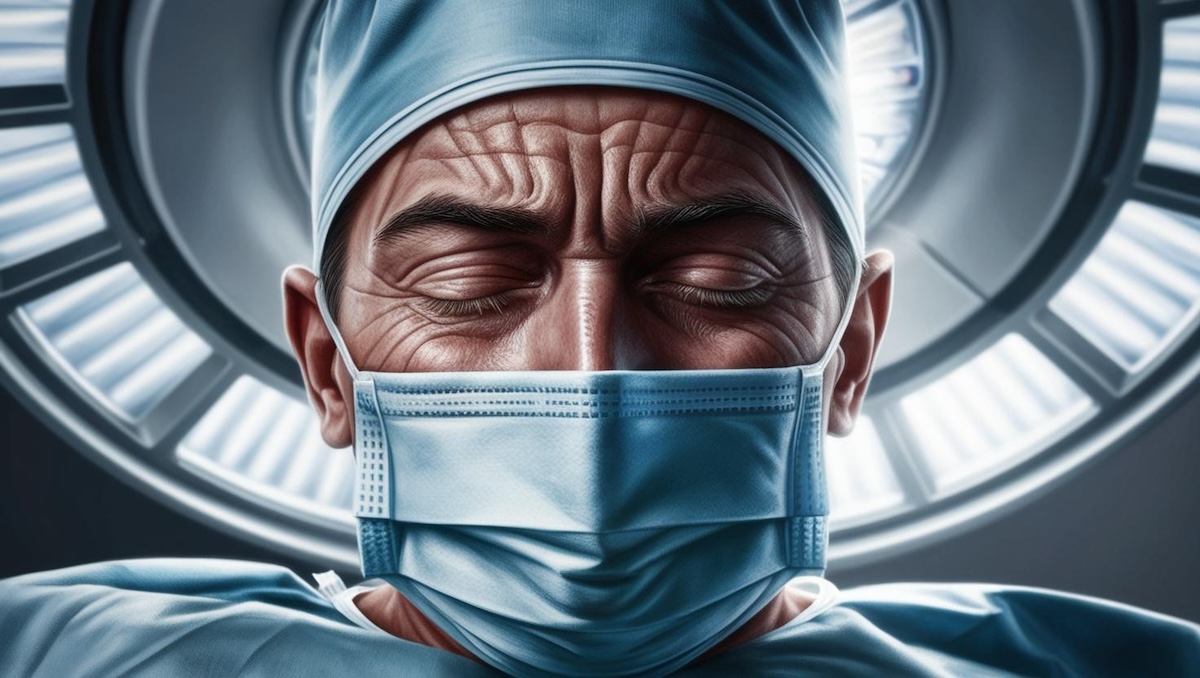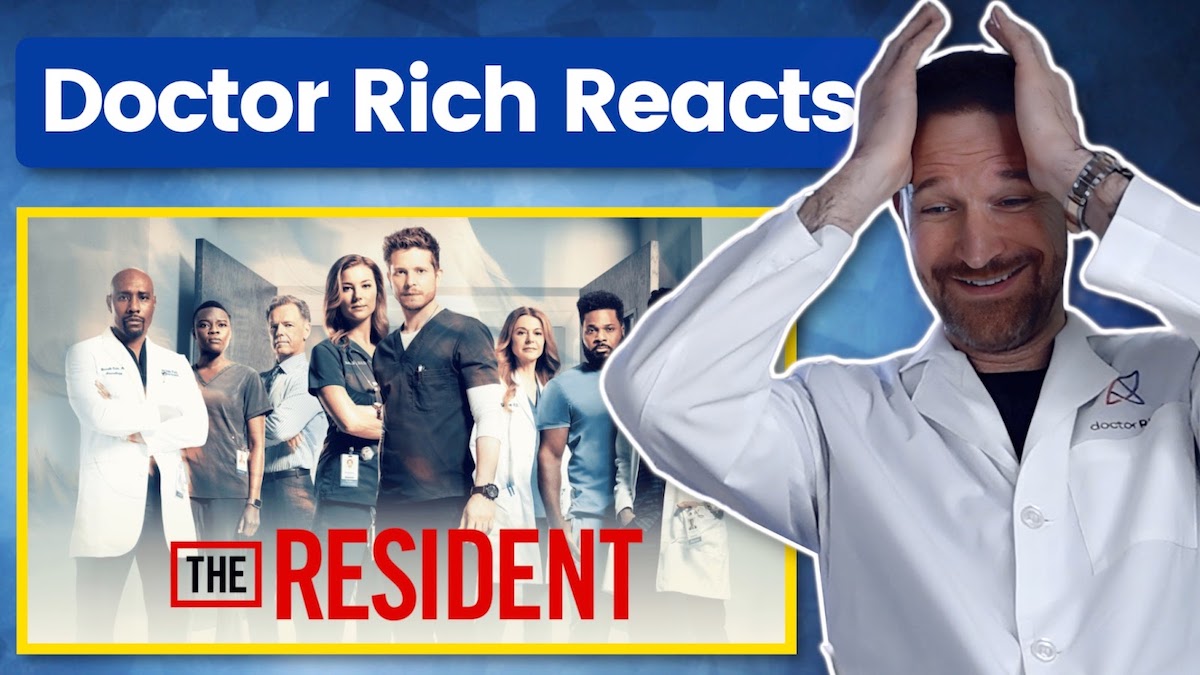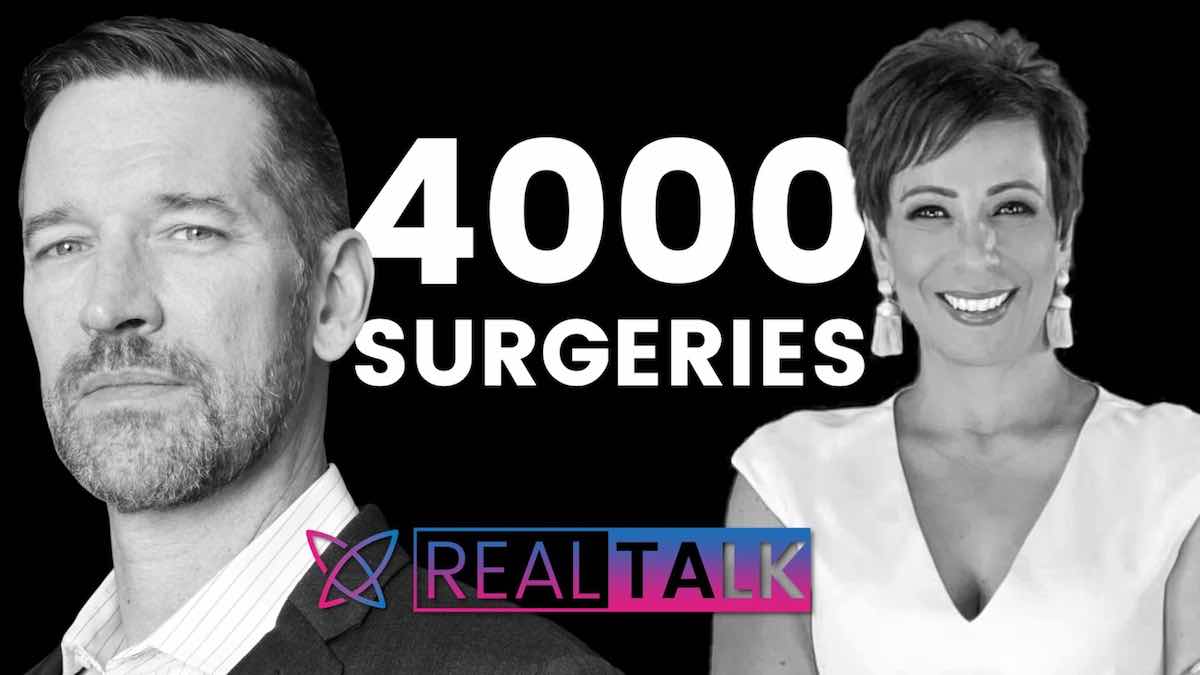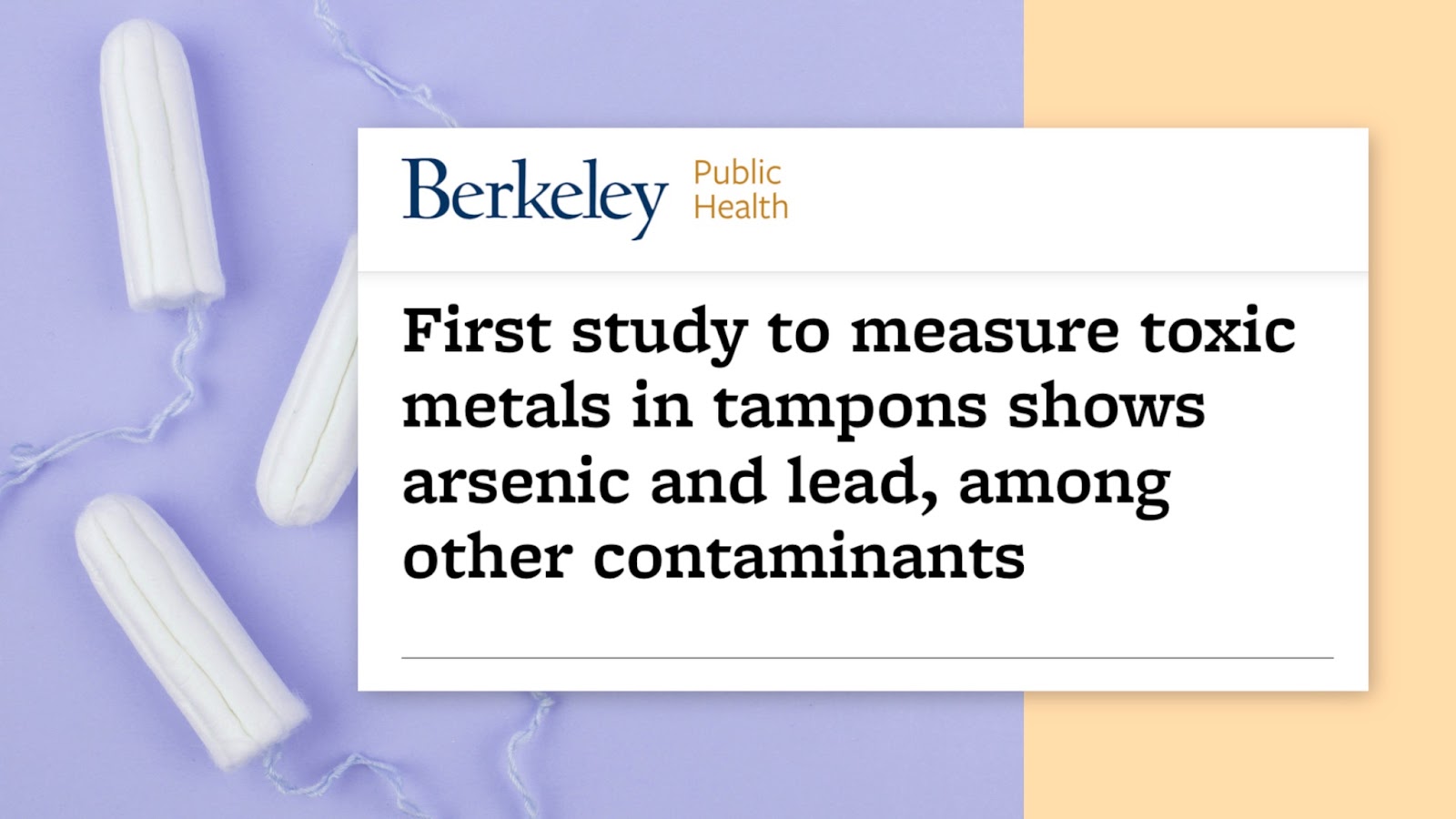Dr. Rich:
Are you considering a hysterectomy or do you know someone who is? If so, listen to Michelle’s story about her experience, what led to it and what came afterwards?
Don’t have time to read this blog post? Watch it here instead!
Dr. Rich:
Hi, I’m Dr. Rich, and my passion is to empower every woman with practical knowledge about the world of women’s health. Today, we have in studio, Michelle, who’s going to share with us her hysterectomy experience. Thanks for coming to tell your story.
Michelle:
Thank you so much for having me, Dr. Rich.
Dr. Rich:
Before we jump in, I want to take a second to answer the question, what is a hysterectomy?
Meredith Palmer:
I want that covered.
Dwight Schrute:
I thought your vagina was removed during your hysterectomy.
Meredith Palmer:
The uterus is different from a vagina. I still have a vagina.
Dr. Rich:
We all love the office, but interestingly, that is not an unheard-of question and there is some confusion about what having a hysterectomy means. We’re going to talk about that today.
Dr. Rich:
The word hysterectomy is the removal of the womb or the uterus, plus or minus the cervix. You’ll not be able to get pregnant after a hysterectomy, but you will be able to have sexual activity once you’ve healed from the hysterectomy. It doesn’t affect a woman’s ability to have lubrication or to have an orgasm. In fact, most women have an improved quality of sexual function after the hysterectomy procedure. The medical term, total hysterectomy, means the removal of the uterus and the cervix.
Dr. Rich:
That does not involve removal of the ovaries. That would be called salpingo-oophorectomy, so that’s a separate procedure. But many women are afraid if they have a hysterectomy, they will have all of the side effects of loss of the ovaries, including vaginal dryness and hair loss and mood changes, night sweats. But rest assured, those are symptoms that are associated with the removal of the ovaries. That wouldn’t happen from just the removal of the uterus, with what we will call a total hysterectomy procedure.
Dr. Rich:
Now quickly, there are several different ways of having a hysterectomy. It can be done through an open incision, kind of like a C-section or kind of an up-and-down incision. This would be called a total abdominal hysterectomy. It can be done with no incisions and it is performed through the vagina. Or it can be done laparoscopically or robotically, which involves little tiny key-hole incisions.
Dr. Rich:
And each of those different methods have benefits. The open surgery has the longest recovery, by far. You’re looking at about a two-month recovery for surgery when they do an open incision, a lot more pain associated with that. We always try to do one of the other ones, either vaginal, laparoscopic or robotic, and most of the literature shows equivalent outcomes for all of those different types. Now, we’ve published literature with a group of high volume surgeons that have shown that our outcomes with robotic are better than all of the other. We’ll drop that in the description section below for a reference.
Dr. Rich:
There can be a number of different reasons that women would have a hysterectomy. And we’ve done a lot of different videos on management of conditions like fibroids, which is the number one reason for hysterectomy, that are more conservative, that don’t involve major surgery. For the purposes of this video, we’re going to talk about just the hysterectomy procedure. That can happen because of bleeding and pain caused by fibroids or adenomyosis or endometriosis. It can happen because of uterine prolapse. It can happen because of some kind of obstetrical emergency or complication. And about 10% of hysterectomies are actually done for cancer of either the uterus cervix, tubes or ovaries. There are many different reasons that someone might need that procedure.
Dr. Rich:
We have the great opportunity today to talk with my friend and patient, Michelle. And why don’t you share with us a little bit about your experience? What was going on with you that brought you in?
Michelle:
Well, actually I had been having problems for several years, so I really wished that I had started looking into this sooner than I did, but glad I did it. But before that I was having menstrual cycles that were so long, like 14 days sometimes.
Dr. Rich:
Oh.
Michelle:
Yeah, and the amount of the cycle was you couldn’t control it. It was just hindering my entire life. I would be on vacation and have to stay in because I couldn’t control what was going on, so definitely did not-
Dr. Rich:
What was your thought around that? I mean, because a lot of people they’ll come in, and I mean you’re very educated, you’re in the medical space, but a lot of patients come in and they just think, “Well, that’s normal. I mean, sometimes you get older and I’ll have a 14-day period.” [crosstalk 00:05:08] What was your thought around it?
Michelle:
At first, I was like that saying, “This is probably normal. I’ve had three pregnancies, maybe things are changing now.” So at first, I was accepting it and just trying to deal with it. But as time went on, I was learning this is not normal, you shouldn’t be doing this for half a month, and so then that’s when I came to see you.
Dr. Rich:
Fantastic.
Michelle:
My symptoms were progressively getting worse. They started out with a heavy cycle and then it turned into more days every month and from 10, 14, sometimes 16, and that’s when I knew that I needed to do something about it. I tried everything, so don’t think I didn’t try taking different hormone replacement. I had an ablation to try to make the bleeding stop completely. None of that worked. I did my own research, went online and realized that I wanted to do a robotic procedure, and one of the best in the country was here in El Paso. I lucked out with that and went to Dr. Rich.
Dr. Rich:
Some people are afraid of having any surgery, but specifically hysterectomy because maybe a family member had an open surgery and they were told that they were in bed for two months or certainly not at work for a couple months. What was your experience?
Michelle:
Well, I will tell you that my mother had an open hysterectomy and was in bed for two months and she actually had some complications with that. It definitely did play into my decision to go this route, but my recovery was probably one of the most simple that I’ve ever been through and I’ve had several surgeries. I’ve had three babies, so we all know how that goes, but this was a very simple surgery.
Michelle:
I don’t even think I felt enough pain not to be able to walk. I mean, I walked out of the hospital, and I had to keep reminding myself that there was a lot being done on the inside of my body because the outside of my body was feeling great. It’s definitely an easy recovery. I was up and walking in two or three days. I don’t know if I’m supposed to say that in front of my doctor, but it was a really easy recovery.
Dr. Rich:
We’ll let it go, Yeah.
Michelle:
A really easy recovery.
Dr. Rich:
Well, that’s great. And I think the robotic technology is, well, in my opinion, the best option. I think a lot of people end up in our practice, in many practices, going home the same day, a quick return to normal activities, driving, back to work. What was your experience?
Michelle:
It was a very quick turnaround time for myself. I did walk out of the hospital. I was out same day. I was driving about maybe day five, which I’m probably not supposed to do either, but I was driving and I was back to work in less than two weeks. I mean, I felt perfectly fine. I really just, like I said, had to remind myself that I actually had some major surgery that happened. But with the robotics, it’s definitely just a game changer for people who are active and they need to get back to their lives quickly, with no complications. I definitely, 100%.
Dr. Rich:
And you say you have to remind yourself, is that because there wasn’t a lot of pain or anything?
Michelle:
Right. I maybe took Tylenol for a couple of days-
Dr. Rich:
Wow.
Michelle:
… but that was it. There was no discomfort. I think the biggest discomfort I had, honestly, was maybe sitting up in the morning, just kind of getting your bearing, maybe a little sore like a hard ab exercise, workout, something like that. But other than that, I mean, I felt fine. There was really no pain, really.
Dr. Rich:
That’s amazing. We normally send people home with Motrin and Tylenol with codeine. You’re a super healer-
Michelle:
Yeah, I think. I don’t know.
Dr. Rich:
… You’re above and beyond. Individual results may vary, but that is a fairly good description of an average recovery. I think people go home the same day. They’re driving probably five days, back at work in two days. There are a few things that take longer. I mean, there’s no sexual activity for two months. We had to lay off the hard ab workouts for probably a few months.
Michelle:
Yes, none of that.
Dr. Rich:
But other than that, I think what you’re saying is what we hear from a lot of patients. And that’s why we see this value in robotics and why we’ve been so adamant about championing women to ask, to do the research, to find a provider that can give them the best possible outcome in the least invasive surgery.
Michelle:
And it’s for all the moms out there like myself who have young kids that you’re driving to school, you’re going to soccer. You just really think in your head, because I know I did, that I don’t have time to be out this long. It’s just this battle in your head. But when you find out exactly… Afterwards, I mean, I feel amazing now and I wish that I had done it sooner. But I know that as a mom, and I’m sure there’s a lot of moms out there that battle the same thing that I can’t take this much time-
Dr. Rich:
Yeah, balance.
Michelle:
… and it’s really not that much time. You’re okay, you’re okay very quickly afterwards.
Dr. Rich:
A lot of people are going to ask, what is the scarring like? What are the incisions? Can you see them? Was there a lot of scarring? Do you notice it?
Michelle:
No. Scarring, so mine are gone. You can’t see them anymore, at all. I had one in my belly button, which I never saw in the first place and then three others, four others… three others, and they’re completely gone. If you look at me, like my abdomen, there’s no scarring whatsoever, so definitely a big benefit.
Dr. Rich:
Some of the common questions that we’ll get for a hysterectomy, people are concerned that after the hysterectomy, the bladder can fall down, they’re concerned that they’ll need to take a hormone replacement and they’re also concerned about sexual function. What has your experience been?
Michelle:
The good news is my bladder is still exactly where it’s supposed to be.
Dr. Rich:
Fantastic.
Michelle:
I’m happy about that. As far as hormonal changes, I mean, it’s the normal that we go through at our age when we’re doing this, but nothing that came from the surgery. There was no weight gain from the surgery and sexual function is good if not better now, so without giving too much information. Yeah, definitely-
Dr. Rich:
Perfect.
Michelle:
… It’s definitely 100%.
Dr. Rich:
Well, and I think these are important questions and there are things that people want to know. If we look at the literature, there’s no high quality evidence that correlates between hysterectomy and weight gain, unless the ovaries are removed. And then that it’s an indirect correlation because people feel fatigued and they don’t exercise as much.
Dr. Rich:
With regard to the bladder, there is evidence that having a hysterectomy can put you at a risk of bladder prolapse. But in your gynecology and recognizing that, we actually do, and we did, a suspension to kind of hold that up to actually lower that risk of that happening in the future.
Dr. Rich:
And as we alluded to earlier, when women are asked to fill out validated sexual satisfaction questionnaires, they actually score higher after hysterectomy than before, on average. I’m delighted to hear, but a very typical result that we would see with this type of surgery.
Dr. Rich:
Two other quick questions. How long from the time that you really thought about it till the time that you actually pulled the trigger, decided to go with the surgery? And did you have a lot of anxiety? I mean, were you worried before having what really is a major surgery?
Michelle:
Definitely. I mean, anybody is going to have anxiety about your having organs removed from your body. It’s a big deal in your head. You’re trying to decide if you even want to do this? Is it really necessary? Can I just deal with these cycles that are crazy, but-
Dr. Rich:
And what do you think about that now?
Michelle:
Oh no, I wish I had done it so long ago. I mean, I can’t tell you, I wish that I knew then what I know now. I know a lot of people say that, but I’m telling you if you’re the mom like me that was sitting at home with this menstrual cycle for a month long, forget it, just do it. You will be fine. It’s a life-changing experience. There was anxiety at the beginning. I’m not going to lie because I’m having these pieces of my body taken out, but you can keep those pieces now because I am just great.
Dr. Rich:
Right. You’re done with it.
Michelle:
Yeah, I’m done. I’m done. It was amazing.
Dr. Rich:
Well, that’s good to hear and that’s a very common theme that people spend a long time, and for good reason, to make an absolutely informed decision, to find the right provider, to make sure that it’s done in a way that will give them the quickest recovery. And a very common sentiment is in hindsight, “Man, I suffered unnecessarily for five years and I wish I would have done it sooner.” It’s not the right answer for everybody, but for some people, and certainly for people with bleeding or pain that’s really affecting their quality of life, it can be, in your words, a game changer, a life changer.
Michelle:
Yeah, and that’s what was happening to me. It was definitely affecting my life on a bunch of different levels. But I will tell you that when I went to see Dr. Rich and he explained it to me, I literally left the room and went and scheduled my surgery for the following week. And I think it was because-
Dr. Rich:
Yeah, I remember.
Michelle:
Yeah, I was like, “Let’s do this,” because he was very thorough. If you’re thinking that you have questions that maybe you haven’t heard the answers to right now, he definitely does such a thorough job of presenting to you what exactly he’s going to do to you and how he’s going to do it. All those questions in your head, there’s a comfort to that, and then you just go and schedule and just get it done.
Michelle:
Definitely my mom’s experience gave me anxiety because she was sick, she had several complications and it took her about a year to get back to normal after all was said and done. But then just knowing, like I’m telling you, I can’t stress enough, the time away from your life, it gives you anxiety thinking, “What if I’m down for a month or six weeks and I can’t drive and I can’t do what I need to with my kids.” Those were the big factors.
Dr. Rich:
Well, and that’s a huge driver, I think for… No one’s perfect, right? I mean, we strive for perfection every day so which we can catch excellence. But having a personally relevant story and a history like that is all the more reason to make sure you find a provider that has a lot of experience in that given procedure, just to minimize as much as humanly possible, minimize the risk of complications because that changes the entire complexion of everything.
Michelle:
Right, and that’s why you have to do your research. I mean, do it like I did. Get online, just look it up, look up the robot and you’ll see Dr. Rich’s face there. I think it’s his best friend. But if you see all of his clinical experience in all the cases he’s done and his success, I mean, it definitely convinces you to at least go to the appointment and talk to him about it and see what he has to say.
Dr. Rich:
Well, I appreciate that. And if we didn’t answer all the questions, please feel free to drop it in the comment section below.
Dr. Rich:
Well, that’s all the time we have for today. Thanks for tuning in, and thank you so much for coming.
Michelle:
Thank you for having me. Thank you so much.
Dr. Rich:
This has been an amazing experience.
Michelle:
Thank you.
Dr. Rich:
If you feel that something we discussed today resonates, there’s someone that you know that needs to hear this information, please hit like and subscribe and share.
Dr. Rich:
Well, that’s all the time we have today. I want to thank you again. Thanks so much for coming in.
Michelle:
Thank you so much for having me.
Dr. Rich:
Thanks for sharing.
Michelle:
Thank you.
Dr. Rich:
If this experience resonated with you, please like and share. Also for more great content, please hit subscribe. If something about Michelle’s story impacted you, please hit like, and please share so that other women can be empowered with knowledge around the hysterectomy experience.




